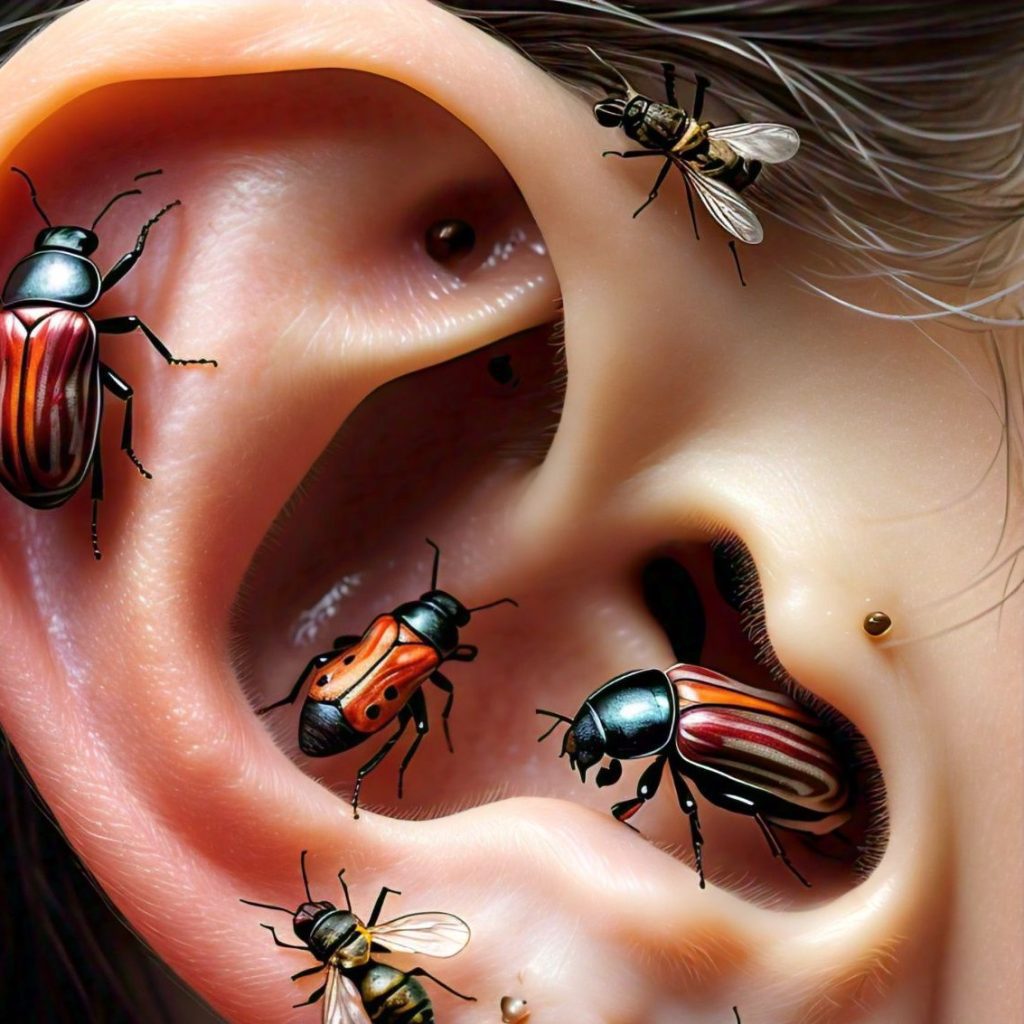Which Flies Do Not Go In Your Ears? Not all flies are attracted to humans! Discover which flies avoid ears, why some insects steer clear, and how to keep your ears safe from pests. Learn the truth about ear bugs, insect behavior, and whether a fly can actually cause damage if it enters your ear. Get answers to common concerns like, “Can flies really go in your ear?” and “Which flies avoid humans?” Read on for expert tips on ear protection and fly behavior!

Which Flies Do Not Go in Your Ears?
Not all flies are interested in human interaction, especially when it comes to entering ears. Non-invasive fly species, such as house flies, tend to avoid the ear canal. While flies are generally attracted to food and waste, they are not naturally inclined to target ears as an entry point. Which Flies Do Not Go In Your Ears?
Flies such as fruit flies are typically attracted to overripe fruits and not human ears. Additionally, gnats, though sometimes bothersome, do not tend to crawl into ears either. Non-aggressive flies prefer to stay away from human ears, seeking more appealing food sources.
Fly Behavior and Human Interaction
Fly behavior varies greatly depending on the species. Flies are often attracted to humans for food, warmth, and sometimes light, but they are not purposefully looking to crawl into human ears. Most flies near humans are simply searching for food sources. Some fly species avoidance behaviors make certain flies stay away from the face and ears. Which Flies Do Not Go In Your Ears?
However, certain bugs that can live in your ear do exist, though they are rare. If a fly or bug does enter your ear, it could cause discomfort but not necessarily long-term harm. Pest control for flies can help reduce the number of flies in your home and lower the risk of such incidents. Which Flies Do Not Go In Your Ears?

Can Flies Enter Your Ears?
While rare, it is possible for a fly to enter your ear. This situation is most common with smaller bugs that can easily crawl into tight spaces. If this occurs, it’s important to remain calm. You can remove the fly using warm water or seek medical attention if needed. The ear canal is a sensitive part of the body, and any foreign object, including a fly, should be removed with care. How long do flies live without food?
Fly Safety Around Ears
Protecting your ears from flies is easy if you understand fly habits. Non-invasive fly species, like the house fly, prefer to stay away from sensitive areas such as the ears. Flies that tend to come close to humans are usually seeking food, not a place to lay eggs. Nonetheless, it’s always good to practice ear safety from flies by using preventive methods like wearing earplugs when sleeping outdoors. Which Flies Do Not Go In Your Ears?
How to Remove an Insect From the Ear
If you suspect an insect, such as a fly, is in your ear, avoid using sharp objects to remove it. Instead, gently flush the ear with warm water, which can help push the insect out. If the bug doesn’t come out, or if you’re experiencing hearing loss or discomfort, seek medical attention immediately. Which Flies Do Not Go In Your Ears?
Common Myths About Flies and Ears
There are many misconceptions surrounding flies and the human ear. Let’s clear up a few: Which Flies Do Not Go In Your Ears?
- Can a fly go in your ear to your brain?
No, a fly cannot reach your brain through your ear canal. The middle ear is well-protected, and while a fly may cause discomfort, it cannot travel that far. - Can gnats lay eggs in your ears?
It’s highly unlikely. Gnats prefer decaying organic matter or stagnant water to lay their eggs, not human ears. - Is it dangerous if a fly goes in your ear?
While discomforting, it’s not typically dangerous. Most flies can be safely removed at home with warm water or by seeing a healthcare provider.
How Long Can a Bug Live in Your Ear? Which Flies Do Not Go In Your Ears?
If a bug enters your ear, it likely won’t survive long. Without access to food or a comfortable environment, the bug’s life span is limited. In most cases, a bug will die or attempt to escape within a day or two. Which Flies Do Not Go In Your Ears?
Fly Prevention: Keeping Your Ears Safe
To prevent flies from getting near your ears, especially while sleeping outdoors, you can use protective measures like mosquito nets or earplugs. Keep your home clean to avoid attracting flies, as dirty environments can lead to fly infestations. Pest control can help mitigate the problem if you notice a large number of flies near your living space. Which Flies Do Not Go In Your Ears?
Treatment for insects getting into the ear
Stay Calm: Try to remain calm. Panicking may make the situation more stressful and potentially worsen it.
Avoid Inserting Objects: Do not insert cotton swabs, tweezers, or other objects into the ear canal. This can push the insect deeper or cause injury.
Tilt Your Head: Tilt the affected ear downward. Gently shake your head to encourage the insect to exit on its own.
Use Light: In a well-lit area, the insect might be attracted to light. If the insect is visible near the ear canal, you can try to lure it out by shining a flashlight near the ear.
Try Oil: If the insect is not coming out, you can use a few drops of mineral oil or olive oil. This can help to drown the insect or make it easier to remove. Tilt your head to the affected side and gently apply a few drops into the ear. After a few minutes, tilt your head again to let the oil and the insect drain out.
Seek Medical Help: If the insect does not come out on its own or if you experience pain, hearing loss, or any signs of infection (such as discharge or swelling), seek medical attention promptly. A healthcare professional can safely remove the insect and check for any damage.
Prevent Future Incidents: To avoid similar situations in the future, keep your ears protected and avoid sleeping in areas where insects are prevalent.

Conclusion
Which Flies Do Not Go In Your Ears? While the idea of a fly entering your ear is frightening, it’s important to know that many fly species avoid the ear area. Practicing ear safety from flies and understanding fly behavior can help you prevent this unpleasant experience. If you do encounter a bug in your ear, take steps to remove it safely and seek medical advice if needed.


This is a super informative guide! Knowing which flies to watch out for and how to protect ourselves from those pesky ear invaders is a relief.
[…] food or mates, they can fly several meters higher when necessary. They thrive in environments where air pressure and temperature are favorable. The question how high do house flies fly often relates to this […]
[…] of flies remain the same. Do flies have ears in the house? No, they rely on their natural sensory organs to navigate their environment, whether it’s indoors or outdoors. Do Flies Have […]